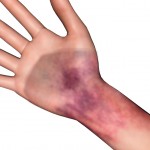
The authors of this study set out to look into the issue of behaviour associated with pain in people with learning disabilities being misinterpreted as reflecting psychopathology.
The authors worked with caregivers of 123 children and young people to examine whether psychopathology altered pain behaviour. They asked the caregivers to complete a checklist, the ‘Non-Communicating Children’s Pain Checklist-Revised’ (NCCPC-R) to assess pain behaviour and the ‘Diagnostic Assessment for the Severely Handicapped-II’ to assess psychopathology.
They found from the analysis of the results that 78 of the young people had clinically significant psychological or behavioural symptoms. Their analysis identified three independent components: pain behaviour, affective disorders, and developmental disorders.
The authors conclude that their results “indicate that psychopathology has little effect on pain behavior and that the NCCPC-R is suitable for children with IDD who also have psychological or behavior disorders.”
The Effects of Psychopathology on the Pain Expression of Children and Youth With Intellectual and Developmental Disabilities, Breau L & Camfield C in Journal of Mental Health Research in Intellectual Disabilities, 4, 4, 290-309
